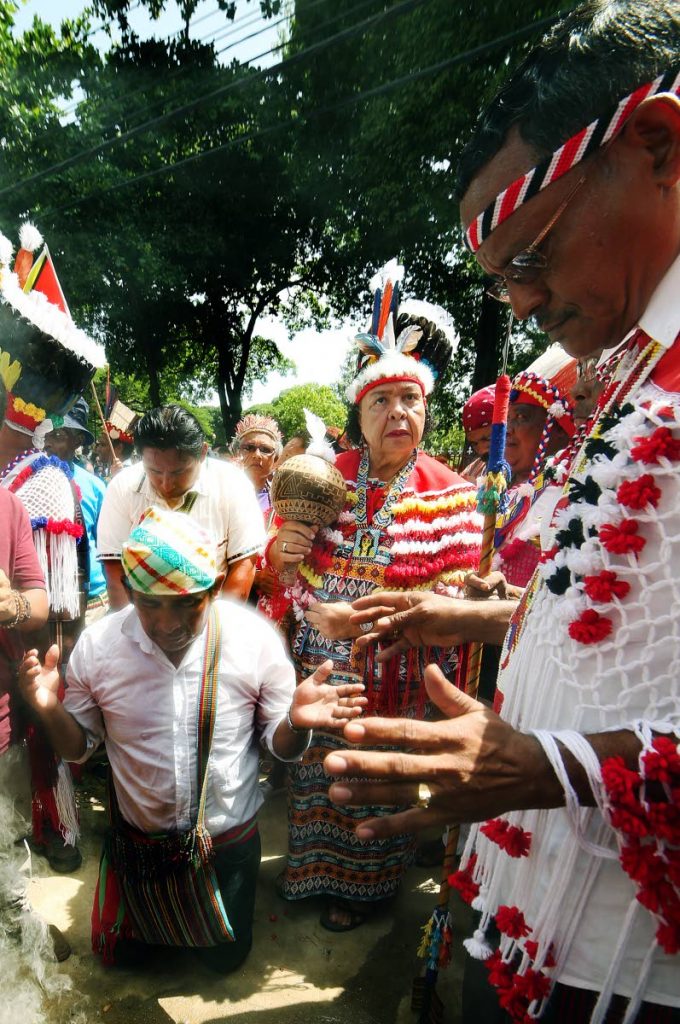Who enjoys the fat of the land?

With wars and humanitarian crises happening everywhere, has the world’s sympathy tank run dry when it comes to the plight of South Africa’s white farmers?
South Africa’s new leader Cyril Ramaphosa is determined to take back and redistribute land stolen by Europeans centuries ago.
The farmers cling on, even in the face of death, claiming that without them the country could starve. This is a point, but it’s not the point. The land was never theirs to own.
Parliament has voted for confiscation without compensation, and it’s been a long time coming.
In 1913, an act of parliament gave 87 per cent of farmland to white South Africans. In 1994, when Mandela took power, that figure was 85 per cent. Today, whites who make up less than nine per cent of the population, still own 73 per cent of agricultural land.
Years of attempted land reform have yielded little equality and the violent retribution that brought white ownership to a bloody end in Robert Mugabe’s Zimbabwe is repeating itself.
White farmers are being murdered – sometimes by their own black employees, as was the fate of Eugene Terre Blanche, the former leader of the white supremacist Afrikaner Resistance Movement (AWB), in 2010.
Australia has shown empathy. It wants to offer white farmers visas and refuge down under – a notable departure from its policy of turning away boats carrying non-white refugees and holding them in offshore detention camps.
In some former colonies built on ethnic cleansing, like Australia and America, repairing historic and ongoing damage to indigenous people is barely on the political agenda. Canada, to its credit, gave back territory to the First Nations in 1999 – the frozen, deserted hinterland province of Nunavut.
But what about the lot of indigenous folks here in TT?
Twenty-five acres of land was leased back to Trinidad’s virtually extinct First Peoples in 2015. Centuries after the indigenous population was decimated, there are few Amerindians today who can claim lineage to the survivors of the genocidal Spanish conquest. The land outside Arima will be used by the Santa Rosa community to celebrate indigenous culture and history.
And what of Trinidad’s other great historic injustices? Is there still land owned by descendants of slave owners?
I asked two of the country’s leading historians, and got interestingly divergent answers.
It’s possible in Trinidad, Bridget Brereton told me, especially the French Creole-owned estates, although much of their land has been sold for development.
It’s highly unlikely in Trinidad, Jerry Besson told me, and proving it would be tortuous. He described how one might cross-check Chacon’s land grants under the 1783 Cedula of Population against Guppy’s Almanac of 1890 against Franklin’s yearbooks of the 1910s and so forth…
That might take weeks, I protested. I’ve got a deadline. Was there not a short answer?
No, and I don’t think you’re sufficiently knowledgeable to write about this at all, Besson astutely concluded.
Besides, he said, "free blacks and coloureds" were the largest slave-owning group in Trinidad.
Brereton contested this, saying the majority of slaves were owned by white families and that some of these Creole families of French, Corsican, Spanish and Irish descent, owned cocoa estates up to at least the 1940s and probably still do today.
Accessing land ownership information is arduous. Last week, the Government made it harder by passing the Registration of Titles to Land (Amendment) Bill, which includes a clause taking away citizens’ rights to searches at the Land Registry. There is an online service available on the Ministry of Legal Affairs website. At the time of writing, it did not work.
Besson and Brereton did agree that Tobagonian land is predominantly black-owned – the British having divided up and sold it in parcels to the formerly enslaved Africans.
In Trinidad, when sugar collapsed, broke planters sold land to British companies like Tate & Lyle and much of it was later acquired by the state through the Caroni (1975) Limited company.
“You’re looking for something that’s not there,” Besson said. I agree with the first half of that sentence.
Growing up, my mother taught me to boycott South African products in the supermarket. Today, Afrikaans businesses still own those lucrative orchards and vineyards. I still boycott.
In Trinidad there is no lucrative farming industry, so nobody cares who owns it. While there is material racial inequality in Trinidad, scrutiny of the economic gaps increasingly looks at the rise of modern globalised industry, rather than the legacy of agricultural colonialism as a cause.
Privately-owned farms producing crops, livestock and dairy belong to descendants of Indians, Africans and Europeans, while the government owns vast swathes of land being used for nothing.
The issue here is not who to take land away from, but how to properly use it to reduce the $5 billion food import bill and employ young people.

Comments
"Who enjoys the fat of the land?"